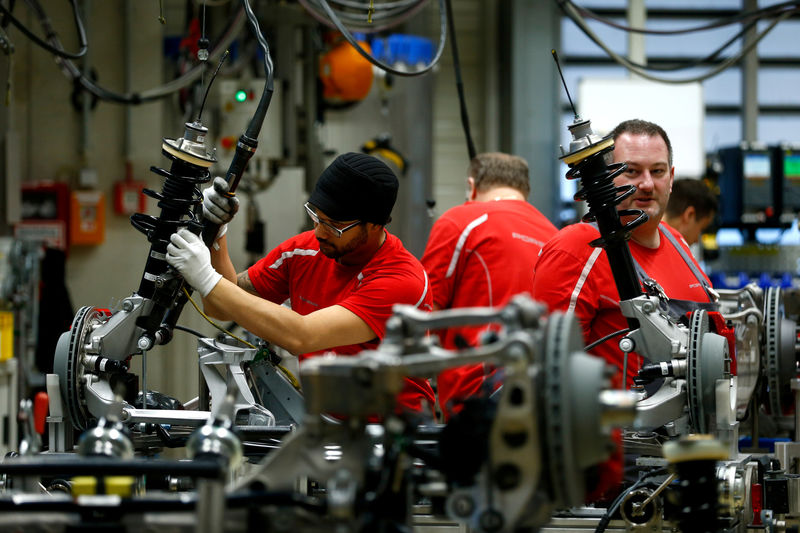Who is Kevin Hassett? Wolfe looks at the Trump ally tipped to become Fed Chair.
BERLIN (Reuters) - Job vacancies in Germany hit an all-time high in the second quarter, data showed on Tuesday, underlining the strength of a labor market that is boosting wage growth and propelling a consumer-led upswing in Europe's biggest economy.
Vacancies surged by 25,000 on the quarter and by 115,000 on the year to reach 1.21 million in the April-June period, a survey by the IAB labor office research institute found.
Industrial output data released earlier on Tuesday and industrial orders figures on Monday suggested German economic growth weakened towards the end of the second quarter as a result of trade tensions caused by U.S. President Donald Trump.
Asked for the main reasons that are complicating recruitment, most employers pointed to a lack of applicants and insufficient job qualifications, the survey showed.
On average, there are almost three job vacancies in Germany for every 100 employees with a labor contract that includes contributions to the state's social security system. In 2012, there were only two vacancies.
"This shows that demand for staff has significantly increased," IAB said in a research note.
Germany's labor market is booming, with employment reaching record highs. An unusually long economic growth cycle, now in its ninth year, coupled with a shortage of working-age people, means many companies are running out of suitable staff.
Many firms are facing difficulties in filling their training positions, with a recent survey by the German Chambers of Commerce showing more than a third of German companies could not fill all of their training places last year. Almost one in ten received no applications for such roles.
The IW German Economic Institute estimated in April that the shortage of manpower is costing the economy up to 0.9 percentage points of output a year.
Chancellor Angela Merkel's coalition government plans to pass an immigration law this year that aims to help skilled workers from outside the European Union to come to Germany and apply for a job.
